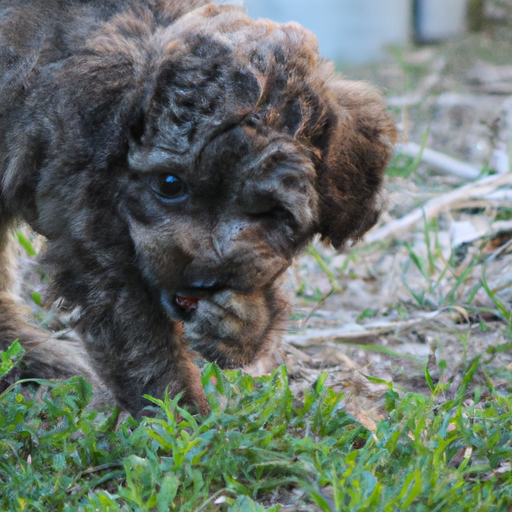Yes, they certainly do! As a caregiver, it is critical to understand the life stages of your furry friend, and teething is an intriguing part of this journey. Let’s delve into the world of puppies and their adorable little teeth.
1. Understanding Puppy Teeth
Just like humans, puppies too go through a teething phase. Your puppy’s baby teeth, or deciduous teeth, start to come in between two to four weeks of age. They are sharp, tiny, and can sometimes cause discomfort to the pup or anyone who gets nipped!
2. When Do Puppies Start Losing Teeth?
The timeline can vary slightly, but most puppies begin losing their baby teeth around three to four months of age. This is when the adult teeth start to push through the gums, causing the baby teeth to fall out.
3. What Happens During Teething?
During teething, your puppy might experience discomfort and may exhibit behaviors like:
- Chewing on furniture, shoes, or anything they can get their paws on.
- Drooling more than usual.
- Appetite changes, they may eat less due to sore gums.
- Irritability and restlessness.
4. How to Help Your Teething Puppy
There are several ways you can help ease your puppy’s discomfort during this phase:
- Chew Toys: Provide safe, puppy-appropriate chew toys. They can offer some relief and keep your pup from chewing on inappropriate items.
- Cold Treats: Frozen carrots or special puppy teething treats can help soothe sore gums.
- Veterinary Check-ups: Regular visits to the vet will ensure your puppy’s teeth are developing correctly.
5. What Does a Puppy’s Dental Timeline Look Like?
| Age | Dental Stage |
|---|---|
| 2-4 weeks | Baby teeth start to appear |
| 3-4 months | Baby teeth begin to fall out |
| 4-6 months | Most adult teeth are in |
| 6-7 months | All adult teeth are in |
6. What If a Baby Tooth Doesn’t Fall Out?
Sometimes, a baby tooth doesn’t fall out, causing an adult tooth to grow in alongside it. This condition, known as retained baby teeth, should be addressed by your veterinarian to avoid any dental issues in the future.
7. How to Maintain Your Puppy’s Dental Health
After your puppy has all their adult teeth, it’s important to establish good dental hygiene habits. Brushing their teeth regularly and providing dental chews can help maintain their dental health.
8. Common Puppy Dental Problems
Even with great dental care, puppies can still develop dental problems. Tooth decay, gum disease, and broken teeth are some common issues. Regular vet check-ups are essential for early detection and treatment.
FAQs
Q: Will I find my puppy’s lost teeth?
A: It’s rare to find a puppy’s lost teeth because they usually swallow them while eating or playing. This is perfectly normal and not a cause for concern.
Q: What should I do if my puppy seems excessively uncomfortable while teething?
A: If your puppy seems to be in a lot of pain, it’s best to consult your vet. They may suggest pain relief or other ways to ease your pup’s discomfort.
Q: My puppy has bad breath. Is this normal during teething?
A: Puppy breath is usually quite pleasant. If your puppy has bad breath, it could be a sign of dental problems and should be checked by a vet.
Q: Can I brush my puppy’s teeth during teething?
A: Yes, but be gentle. Use a soft toothbrush and toothpaste designed for dogs. Brushing can also help soothe your puppy’s sore gums.
By understanding your puppy’s teething process, you can effectively support them during this important stage of their life. Happy puppy parenting!



